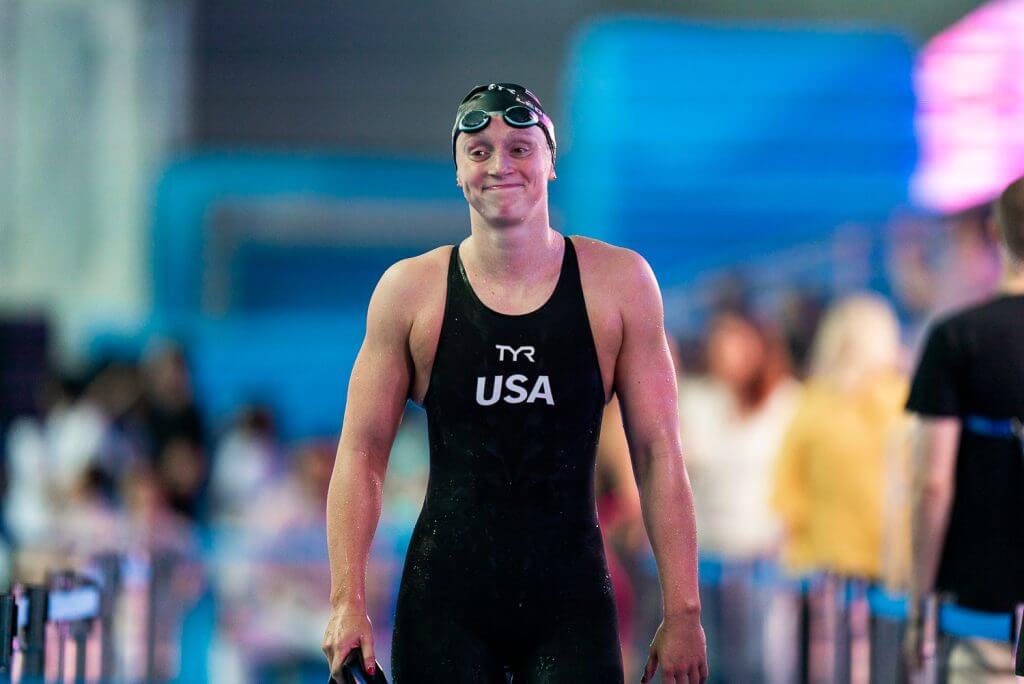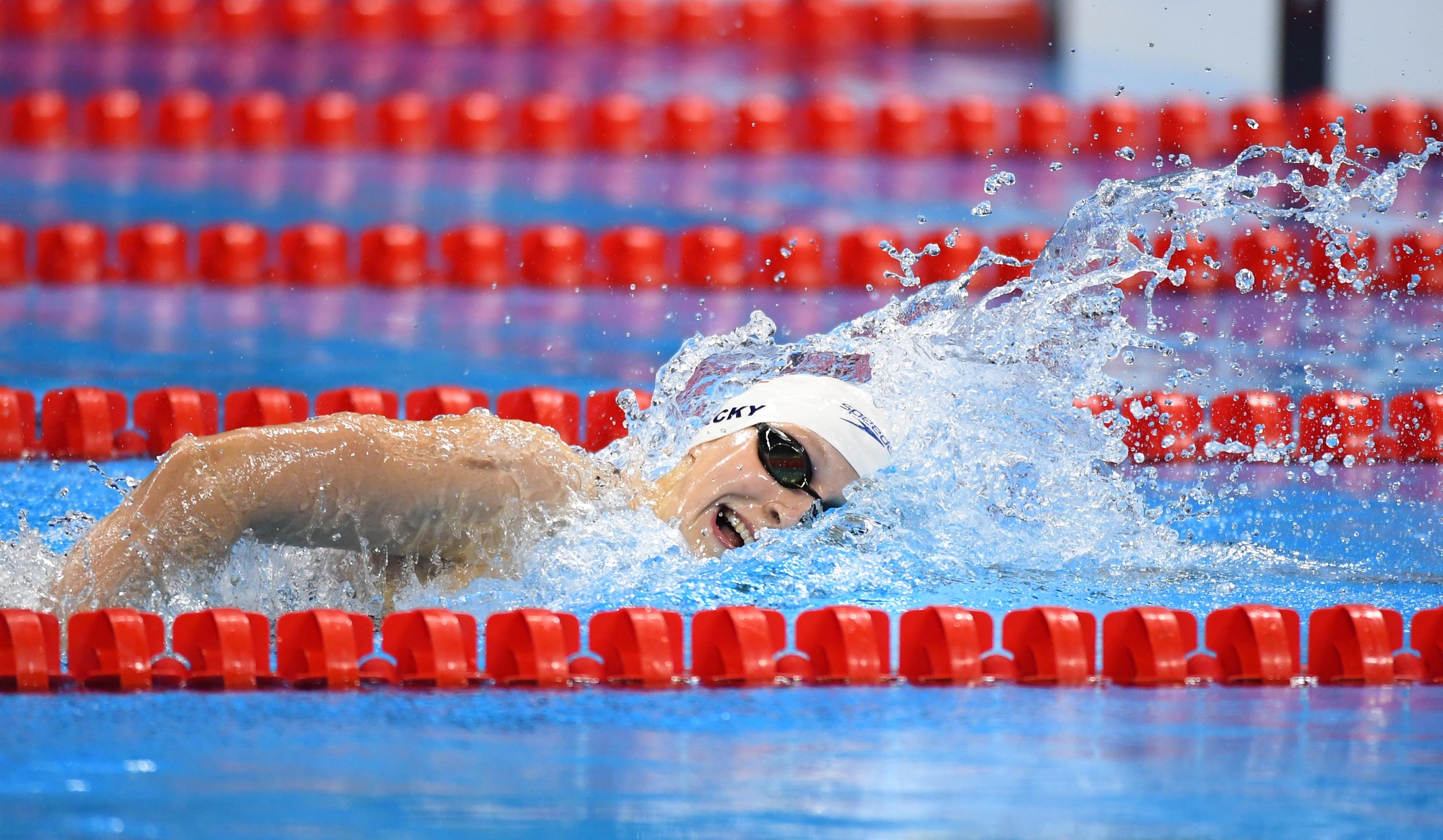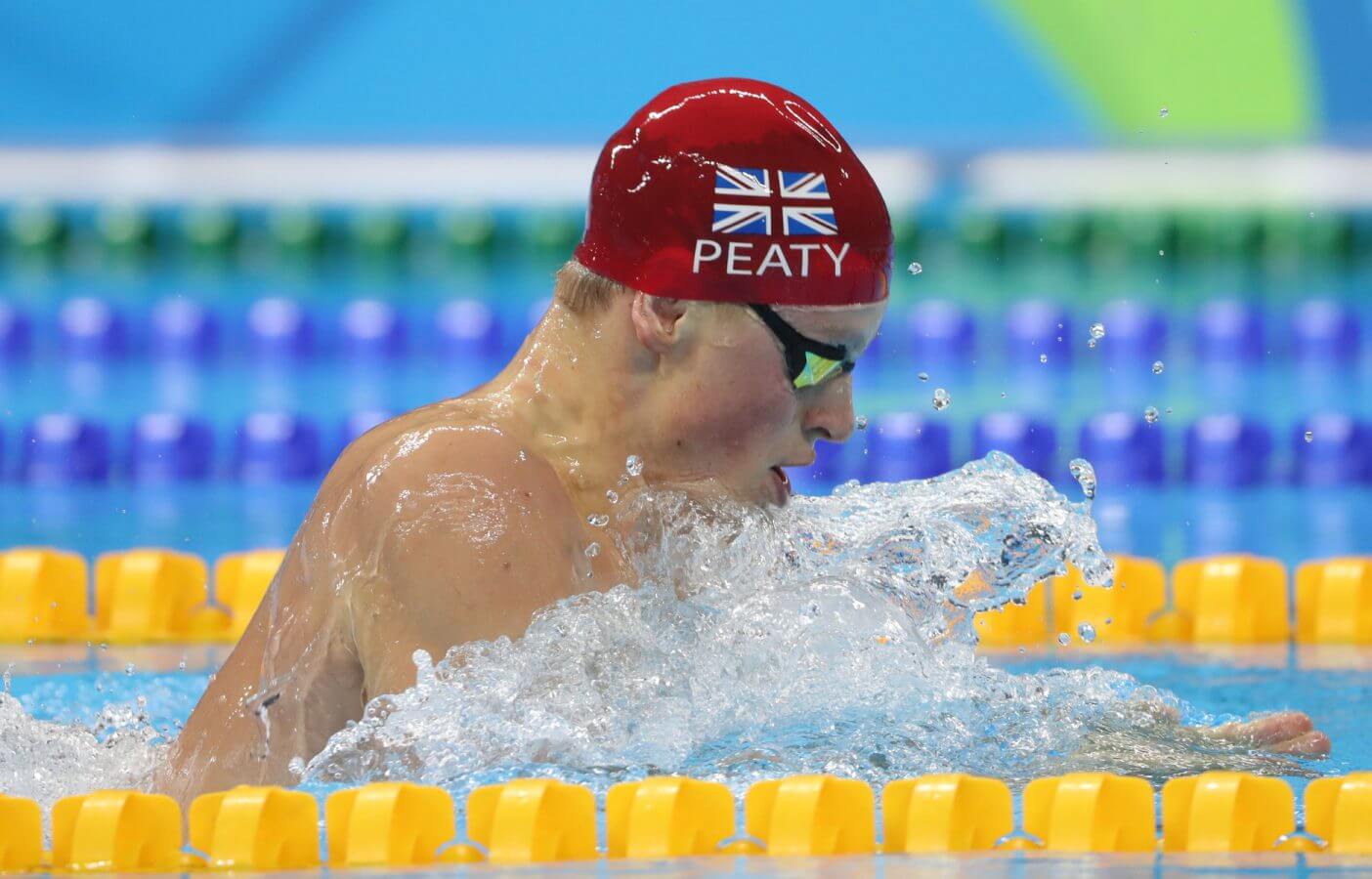Are There Too Many Events in Olympic Swimming?

Editorial content for the 2021 Tokyo Olympic Games coverage is sponsored by GMX7.
See full event coverage. Follow GMX7 on Instagram at @GMX7training #gmx7

Of the three new Olympic swimming events added to the program in 2017, none will draw more attention at the 2021 Tokyo Olympics than the women’s 1500 free, largely because of the woman who won the race at three straight World Championships, including by almost 15 seconds in 2015 and then more than 19 seconds in 2017.
Five years after Katie Ledecky won Olympic gold in the 400 free by almost five seconds and in the 800 free by more than 11, the margin could be even greater in the 1500 free at the Tokyo Games. In the years since Rio, she has lost some of her aura of invincibility, with an illness derailing her campaign at the 2019 World Championships (although she still won gold in the 800 free) and Ariarne Titmus emerging as the new World Champion in the 400 free, but Ledecky will still head into as the world’s premier female distance swimmer

Photo Courtesy: Christopher Hanewinckel-USA TODAY Sports
So, with another event on the program that Ledecky may win easily, it won’t be at all surprising if she bags another substantial medal haul in Tokyo. Defending all her titles from Rio plus winning gold in the 1500—a tall task but not an impossibility—would give Ledecky ten career Olympic golds.
That’s a lot of gold medals. In fact, only one person in any sport has ever won more, and that’s Michael Phelps, who has 23.
During his lengthy career, Phelps made the art of swimming and winning multiple events at an Olympics seem downright routine, competing in three to five individual events plus three relays in four straight Games. During that same stretch, fellow Americans Natalie Coughlin, Ryan Lochte, Katie Hoff, Missy Franklin and Ledecky have all won Olympic medals in a wide variety of races.
For big-time swimming fans, watching Phelps race day after day under the spotlight of the Olympics with fresh competitors waiting in each new discipline and still managing to come out on top has been nothing short of remarkable.
For Olympic fans who follow swimming casually every four years, it’s a sign that swimming has too many events. And if these people thought 32 events was excessive, what will they have to say about 35?

Photo Courtesy: Geoff Burke-USA TODAY Sports
An SB Nation article from 2012 claimed that “21 medals in virtually any other sport would equate to less than a dozen,” noting that Phelps won three gold medals in 200-meter races in 2008 while track star Usain Bolt had only one opportunity to win the 200-meter dash.
In the same year, a New York Times opinion piece called for the Olympics to cut down to 18 swimming events, eliminating the 100-meter races for each stroke, the 200 IM and all but two freestyle races per gender. That way, there would be no “inordinate amount of opportunities for swimmers to medal.”
“Fewer events would create greater competitive intensity because swimmers who hope to medal more than once must broaden their focus rather than gravitating toward a specialty. The changes would also make the medals more meaningful and better highlight the most talented swimmers.”
In 2016, a post on Reddit called for swimming’s event total to be chopped because swimmers “have been entering eight, even nine events in one Olympics” and can “win more medals in one Olympics than most athletes will in their entire careers.”
Eight or nine events in an Olympics? Clearly, the person who posted that thread had Phelps in mind.
But the reality is that the Phelpses and Ledeckys of the world are a minority, a tiny fraction of swimmers talented enough to compete across such a wide spectrum of events at a level like the Olympics.

Photo Courtesy: Erich Schlegel-USA TODAY Sports
How about Adam Peaty? Widely considered one of the world’s best swimmers, his dominance and record-shattering speed extends just to the 50 and 100 breast. At the Rio Olympics, Peaty put together the single most dominant individual performance of the Games, winnning gold in the he men’s 100 breast by 1.56 seconds—and didn’t swim any other individual event all week. He eventually did pick up a silver on Britain’s medley relay.
Ryan Murphy won three gold medals in 2016 swimming backstroke but has never competed internationally in any other stroke. In women’s competition, stars like Cate Campbell, Simone Manuel, Lilly King and even world record-breaking backstroker Regan Smith are all single-stroke specialists.
Milorad Cavic, the Serbian who was one hundredth away from beating Phelps in the 100 fly at the 2008 Olympic Games, had four total swims at those Games: the 100 free prelims (he scratched the semifinals) and three rounds of the 100 fly. Phelps, by comparison, had 17.
Outsiders may not understand it, but swimming is that specialized. The addition of the women’s 1500 free and men’s 800 free will undoubtedly provide big opportunities for swimmers whose unique skill sets are geared towards those specific events.
Why would the best swimmers in some events and not others deserve a chance to be recognized at an Olympic Games?
Sure, swimming has a lot of events, but the 100 free and 100 breast have as much crossover as the 100-meter dash and the triple jump in track and field. It’s not impossible to do both, but it’s highly, highly unusual.
Bolt, an eight-time gold medalist considered one of the greatest Olympians of all-time, has been dominant in his specific events over three straight Games, but he never attempted anything like the triple jump, the pole vault or even the 400-meter race.
But the 100-meter and 400-meter races in track are no more dissimilar than the 100 fly and 400 IM, and Phelps won gold in both of those in Beijing. No reason to look down on swimmers or their accomplishments just because of historic outliers like Phelps and Ledecky.
And no reason to look down on those who take advantage of the three new Olympic swimming events slated for next year’s Tokyo Olympics.
“This is the Olympics. They’re still the best swimmers in the world. I don’t think it devalues the medal,” longtime NBC Sports analyst Rowdy Gaines said in 2017.
“You’re still talking about the cream rising to the top. Because it’s every four years, it’s not an easy journey for an Olympic athlete. We don’t have a World Series, a Super Bowl that’s every year. Because that Olympic journey is four years in the making, I don’t think anything that happens at the Olympic Games is devalued.”
Click here to read about the positive reaction within the sport to the new Olympic swimming events. All commentaries are the opinion of the author and do not necessarily reflect the views of Swimming World Magazine nor its staff.





No!
No
No, 50s for all strokes should be allowed.
No!!!
Ridiculous!
Not at all. Add 50’s for all Strokes !
!
If they can show 2* 10k open water, 2*triathlons, 2*roadrace, 2*marathon and so on… You can show a 400 IM or 1500 freestyle. Would be very disgraceful to take a race off the program.
In my opinion, that is.
No! It’s a “pure sport”. There are too many sports decided by arbitrary points and judging systems. Trim them down first.
No
No!
Enjoy the superhero record-breaking performances of Phelps, Ledecky, Bolt. Their type do not come around very often.
No! There’s too many cycling events though ?
Lindsay Allix you’re right, some of the cycling comps are ludicrous….
No
Get rid of the mixed (coed) relays. Or is that just Worlds? We do not need both an 800 and 1500 free for women.
No
Not enough. I think they should have more open water: a 1km, 5km, 10km and 20km relay.
No
No
1500 breaststroke
Annmarie Hughes 400 and 800….why do freestylers get so many opportunities that other specialists are denied???
Yes. The freestyle program is quite good, even if the 800m has no raison d’être. But too many events in backstroke, breaststroke, butterfly should not even exist. Some swimmers cannot even swim all their “best” events, in some championships.
If swimming has too many events what about track and field